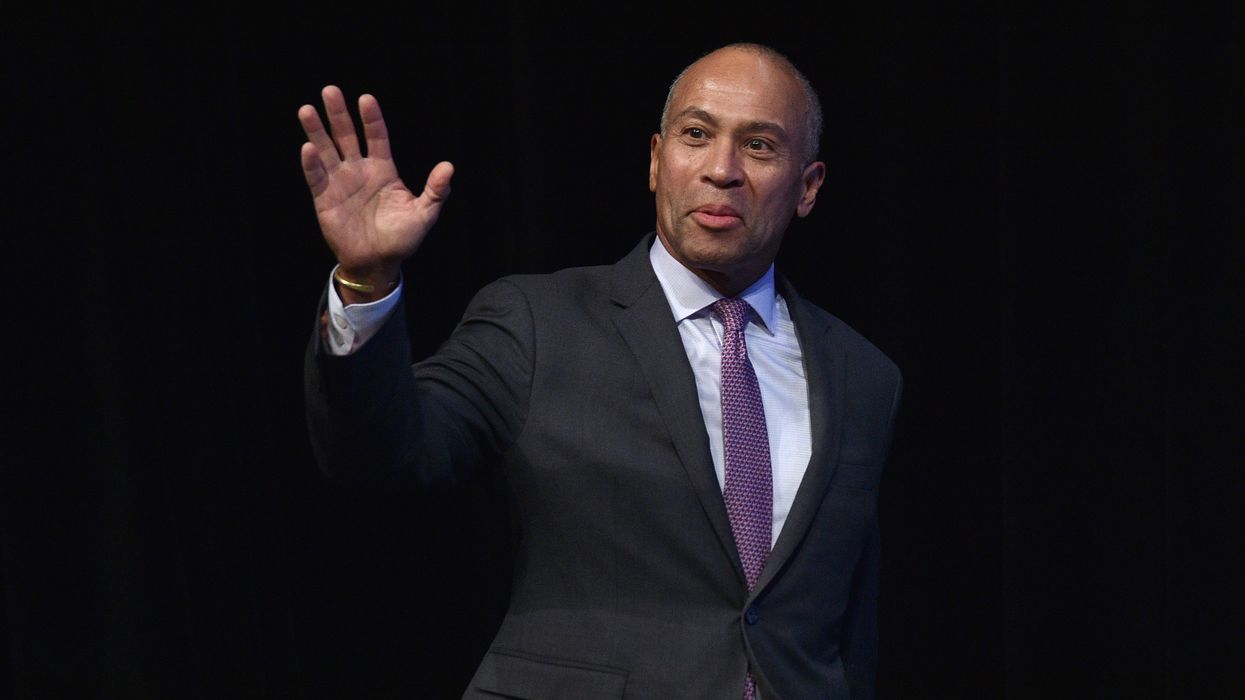Anderson is the editor of "Leveraging: A Political, Economic and Societal Framework " (Springer, 2014) and ran for the 2016 Democratic nomination in Maryland's 8th Congressional District.
So many of the 2020 Democratic candidates are qualified and would have a good chance of being good presidents, but it is unclear if anyone is up to the task of defeating President Trump. Former Massachusetts Gov. Deval Patrick, who jumped into the race in November, has the charisma as well as the executive branch experience, experience in Washington, and arteries connecting him to former President Barack Obama to win the nomination and the general election.
What Patrick does not have is a theme for his campaign. If he did, the money and followers might come his way. For now, he remains a virtual afterthought in the race. But I have a winning suggestion for him.
He is talking about solving problems based on results he achieved in Massachusetts and unifying the country, but everyone talks about solving problems and unifying the country. Unifying the country, as Winston Churchill once remarked of a pudding served to him, is a pudding that "has no theme!"
Patrick is positioned to be the best kind of centrist in the race, a kind of centrist I have previously called a "sentrist." Sentrists leverage the uncertainty of those in the middle in order to create bipartisan solutions to our nation's problems. They move beyond left and right in order to articulate a new center for American society, but they distinguish themselves from moderates because moderates are associated with middle of the road leaders (and voters) who stand in between liberals and conservatives and ask that we split the difference.
Sentrists are bold. They're bursting with passion. While sentrists don't have all of the answers, they do have the right ideas, impulses and intelligence to work with Congress and the American people to get the job done.
If Patrick could convert his unity message into a more focused message about moving beyond left and right and leveraging the uncertainty of those in the middle, then he could hitch his energetic, exuberant voice to the sentrist train.
Behind the podium he can be as electrifying as Obama or the Rev. Jesse Jackson.
There are other energetic, exuberant speakers in this race — notably a fellow New Englander, Sen. Bernie Sanders. But we don't need another Sanders in the race and Patrick has in no way suggested that he is another left wing democratic socialist to offer primary voters. To the contrary, Patrick is speaking the language of unity and finding a way to avoid extremes, but he has not found his voice yet because his team has not found its place on the ideological spectrum.
And they won't — sentrism does not fit on the ideological spectrum. It is a new view for a new time period, and it needs someone to adopt it and run on it for president.
Sentrists support increasing the Social Security payments of the least advantaged seniors and also extending the age eligibility by two years. Sentrists support major child care support for families with young children and offer an option of a tax credit for two-paycheck families who would rather have one parent at home with a young child. Sentrists do not support the Green New Deal but they do call for uniting public and private strategies to combat the planetary crisis before us.
Sentrists do not have a white paper on everything, like Sen. Elizabeth Warren. To the contrary, they appeal to the real uncertainty that up to half of our potential voters have about major policy issues and offer their sentrist, outside-the-box thinking to these voters as a promise to get things done. Sentrists validate the uncertainty of voters; they don't offer simplistic solutions that will never pass Congress.
We are at a critical juncture in the Democratic race for president. Patrick hails from Massachusetts, a state that has produced the Kennedy family as well as a string of moderate Republican governors ranging from Bill Weld and Mitt Romney to the incumbent, Charlie Baker. It's known as a very liberal state, but insiders know that state politics often requires cooperation across the aisle, especially with veto-proof majorities in both chambers. Even though Patrick governed amongst Democrats, the Legislature is used to wrestling with their governors and they made Patrick wrestle with them.
The Democratic party needs a candidate who has a very forceful voice and knows the importance of compromise as well as synthesis. The party needs to break out of the centrist/progressive dichotomy. The party needs a third kind of candidate, a sentrist.
Patrick needs a bold theme to harness his power. Sentrism needs his leadership and his voice.




















